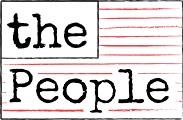Civics U: What Form is Best, and What’s the Difference? Part 3 – Reflections: Moral and Pragmatic Questions
The previous article described the governments and economies of Russia, China, and Saudi Arabia. The countries differ from one another and from the United States in the amount of citizen participation and control allowed, and in the degree to which citizens control the government and the government controls the citizens. Each of the governments owns or governs the country’s resources and means of production in some way to provide for and also to limit people’s access to needed goods and services. In each case their economies might be said to be mixed economies: that is, having elements of government ownership in socialist, communist, or totalitarian forms; and also having private businesses operating in a capitalistic fashion. The American system of democratic capitalism today is also considered to be a mixed economy with capitalism at its core but combined with government ownership and regulation of, and investment in, certain corporate business operations.
Each government provides for and/or limits the people’s voice and participation in government in differing ways. Regardless of the form of government, whoever governs must deal with the people and in some way provide for their needs. And the people must deal with whoever governs, and must support or at least submit to the system and those in power.
The question in all of this is, “which type of government and economy is best?” and “best at what and best for whom?” Is a type of government system neutral? Can capitalism, socialism, and communism each be operated in a moral and ethical way? Can a dictatorship or monarchy be operated in a moral and benevolent way? Could each protect individual rights including the freedom of speech, religion, press, etc., or would this be a contradiction? Can a ‘good’ form of government be operated in an unethical or immoral way? And can even a free, democratic form of government involve dictatorship by the majority and a loss of minority rights?
The historic American system is unique and distinct from the others systems in its grounding on people’s individual rights, in its emphasis on the people’s role in government, and in its provision for not only political freedom but also for individual creativity and spiritual freedom. In contrast, the Russian and Chinese systems suppress much religious expression, and the Saudi Arabia system dictates religious expression and conformity.
The American system is not one of anarchy. Government has a role and purpose. As mentioned in an earlier column, it has a defensive role and an offensive role. The defensive role is to defend, protect, and preserve the people’s fundamental rights and freedoms. The offensive role is to do what individuals and private enterprises cannot do (due to resources, technologies, finances). Historically, for the federal government, this included funding and organizing a national military; building dams and canals and interstate highways; governing interstate commerce; and operating national parks, federal police and investigation departments, the postal service, the internal revenue service and a limited number of other departments. Today the federal government operates in many more spheres, some of which previously were conducted exclusively by the private sector, while, ironically, a few areas previously handled by the government have been partially or totally privatized.
‘Local control’ has been an ideal that was intended to keep social initiative and government decisions in the hands of the people. However, very many activities conducted by state, county, and local governments are now funded and thus to some extent regulated by the federal government.
Socialist and communist government systems were formed from a largely materialist worldview. Marxism paid attention to people’s economic conditions but not to their spiritual wellbeing – thus the association of communism and atheism.
Correlation does not prove causality or a cause and effect relationship. Nevertheless it is interesting to note that while there is debate about government’s increased power and presence in people’s affairs and possible movement toward democratic socialism, there is also a decline in people’s religious affiliation. So it is important, then, to note that in the American system and cultural heritage the elements of free enterprise, capital, investment, private property and ownership, and profit are directly associated with, and even based on, the ideas and ideals of liberty, vocation, work, motivation, choice, and purpose, and that these ideals do not come from the government, even when government has a role and obligation to protect them.
Ultimately a government can either be an external organization and power, independent from the people, that oversees and governs people’s economic or cultural lives; or it can be a system that people organize to protect and support achievement of their mutual goals and cultural ideals. Given the philosophical and political polarization in the U.S. at this time, the challenge is for the people to identify, clarify, and find agreement on the historic principles and system and perhaps adjustments that are needed to actualize the continued freedom and prosperity, individually and collectively, of its people.

